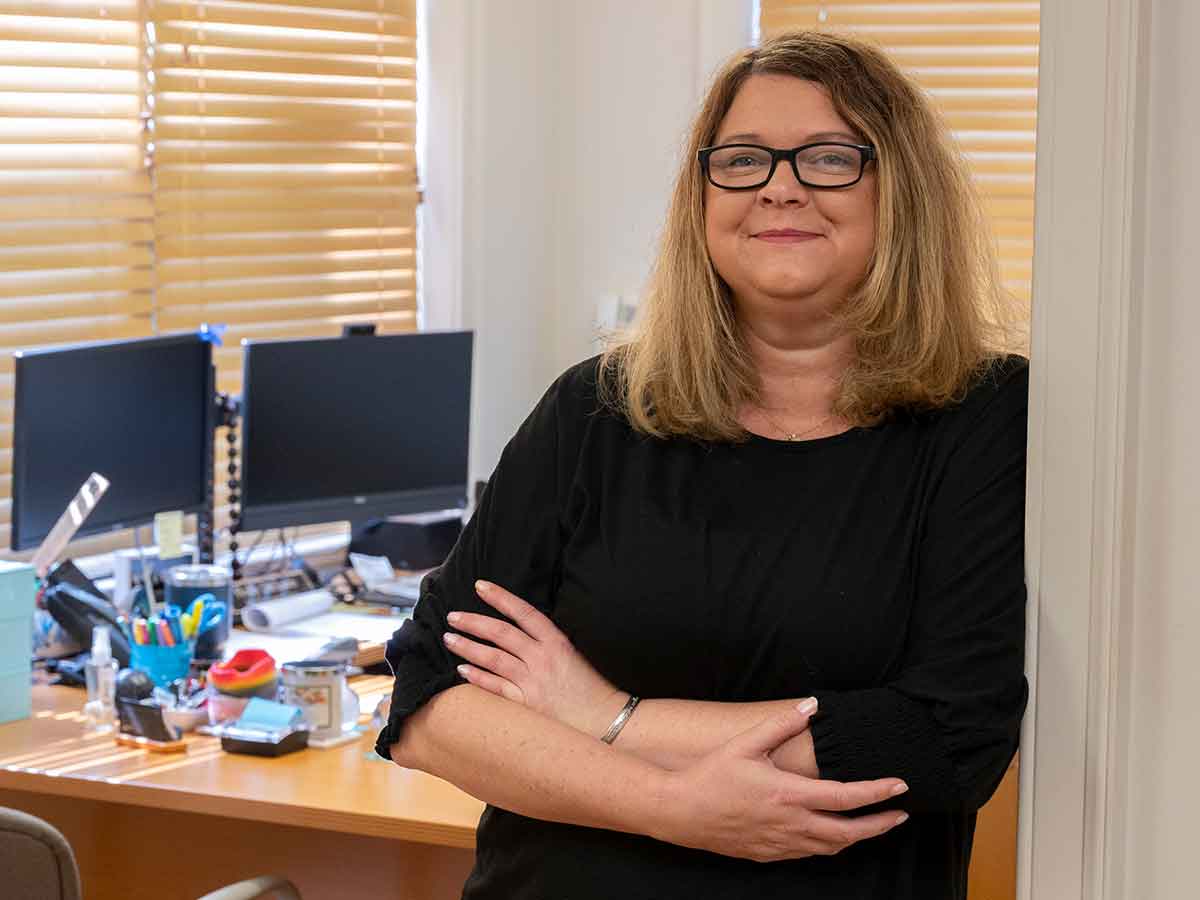ACLU of Arkansas Executive Director Holly Dickson said her eyes were first opened to racial injustices in Arkansas and the nation as a child, when she saw the advocacy of Black Arkansas trailblazers like Nolan Richardson and Lencola Sullivan, the first Black woman to be crowned Miss Arkansas.
After law school in Little Rock, Dickson launched a private practice focused on civil rights and employment law. She joined the ACLU of Arkansas in 2006 as legal director where, among other big moves, she blocked a ballot initiative that would have barred LGBTQ+ people from adopting children. In 2019, Dickson became the state ACLU’s interim executive director. She took on the position permanently in 2020.
Now, as the ACLU of Arkansas celebrates its 55th anniversary, it faces new setbacks, including Arkansas’s restrictive abortion ban, set in motion by the U.S. Supreme Court’s Dobbs v. Jackson Women’s Health Organization decision in 2022. Dickson said she felt as though Arkansans were facing the same legal and political debates they have for decades.
What’s the most rewarding part of your job? And what’s the most frustrating?
The most rewarding part of the job is the people connected with the work. The people with whom we do the work, the people we do the work for, the people who make the work happen, even some who are obstacles to the work. As for the most frustrating part, we have a saying in our office: “Everything old is evergreen.” We no longer have Roe. We still don’t have women’s equality. Racial justice has gone backwards. All of those old struggles still exist, so the most frustrating part for me is not being able to get immediate results. We want to have that world that was promised to us — the world we wish to live in, the promises of the Constitution, civil rights laws being implemented and respected, now. … It’s the continuing onslaught of folks who are trying to fight those old fights. I don’t think history will be on their side, but the frustrating part is the harm to the people happening in the meantime while we do our work.
How would you characterize the work the ACLU of Arkansas has done over the past 55 years?
Trendsetting, in many ways. When we first started doing LGBTQ rights work, it was very unpopular. It was the ’80s, so no one was doing it, and a lot of our donors and supporters did not care for it. But we have always kept a varied agenda and docket. We’re not just looking to advance one issue area, we are trying to advance all of the civil liberties and civil rights guaranteed to Arkansans and Americans. You pick your issue area, and I can find something in the 55-year history of the ACLU of Arkansas where we have worked to advance it. Not only issue and topic diversity, but also geographic diversity. A lot of people think that the ACLU is just in Little Rock, or it’s an urban organization, but we’ve worked in cities, towns and spots in the road across the state.
You’re Arkansas born, raised and educated. Is it difficult being in frequent opposition with those leading the state you call home? Would you characterize it that way?
I wouldn’t, because I’m consistently and primarily in opposition to the politicians who have been elected to office, but I think they’re out of step with most Arkansans. These [issues] are not just legal questions for us. They are affecting Arkansans’ lives and opportunities, and we don’t just challenge them to get good rulings or rack up academic wins. We look for impact cases that protect the fundamentals of democracy — transparency, free speech, right to association, all of those things — as well as the systemic equality that we know we are still striving for in this country. I think maybe it’s the libertarian streak that runs throughout Arkansas as well, that we tend to think for ourselves, and [it’s the] same with most people, including a lot of the legislators you may never think we’d work with. I tend to look for commonalities, and even if we’re never going to agree on any issues, I want to find commonality in another person’s humanity. I think coming from that sincere place, which is a persona most Arkansans share — that we do care about one another, whatever you may say about your politics. When you are faced with a person’s needs, that’s a person, and we care about people. So one of the best things has been getting to work with unlikely allies.
***
Hometown Hero: Lencola Sullivan, first Black woman to be crowned Miss Arkansas
Currently Reading: “West with Giraffes,” by Lynda Rutledge and “Shielded,” by Joanna Schwartz
Hobby: Visiting zoos with family
Education: UALR’s William H. Bowen School of Law

